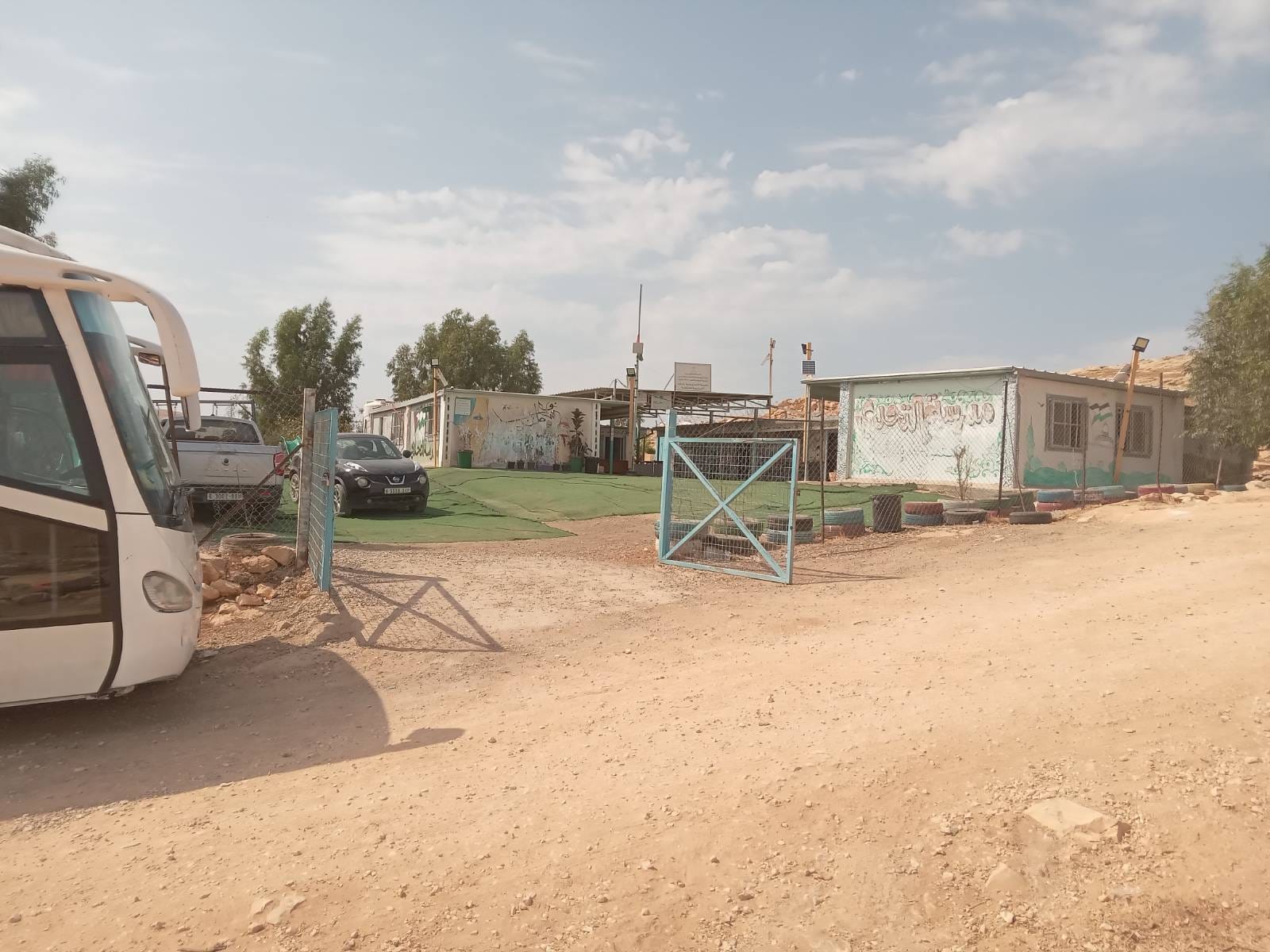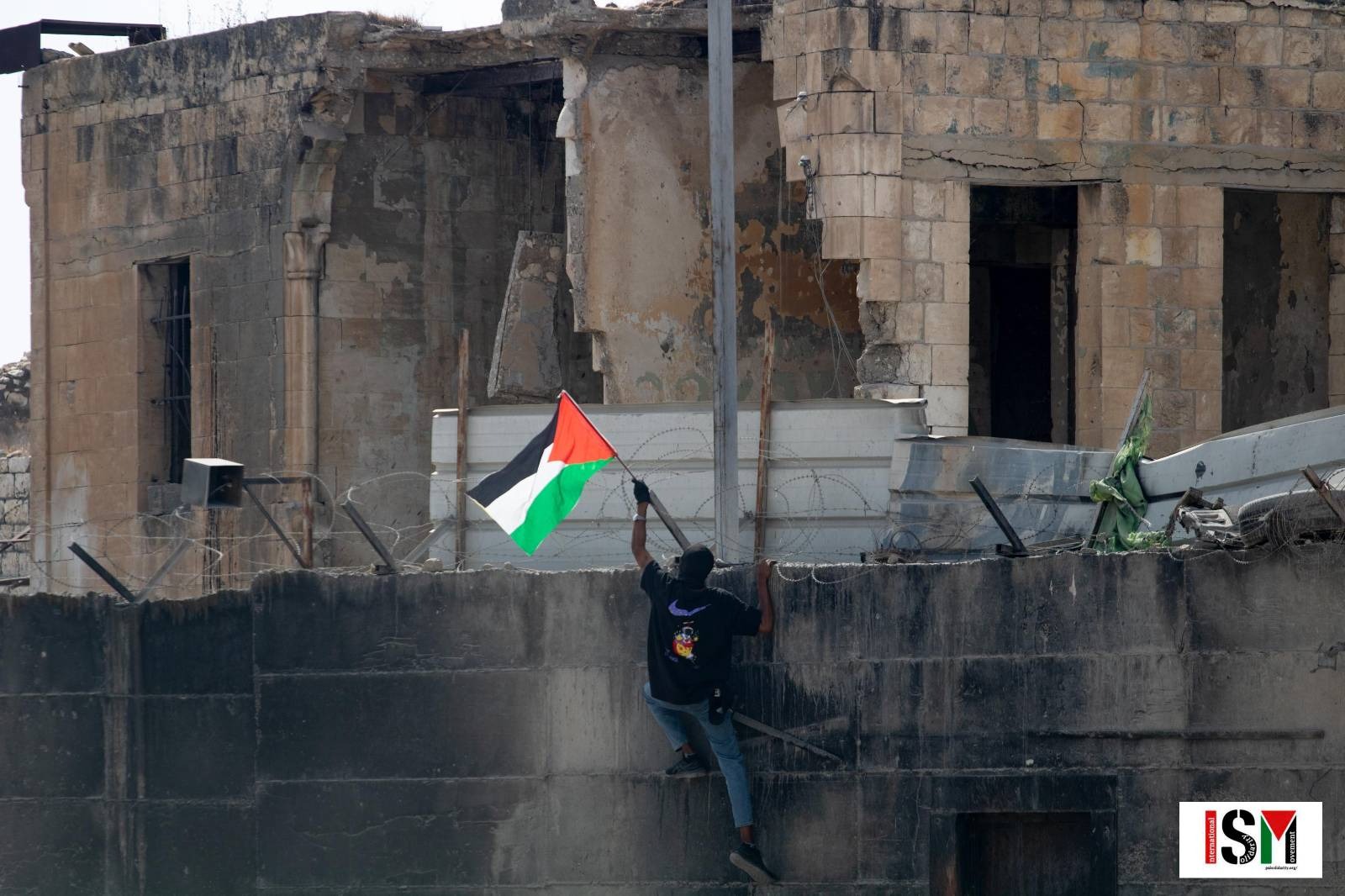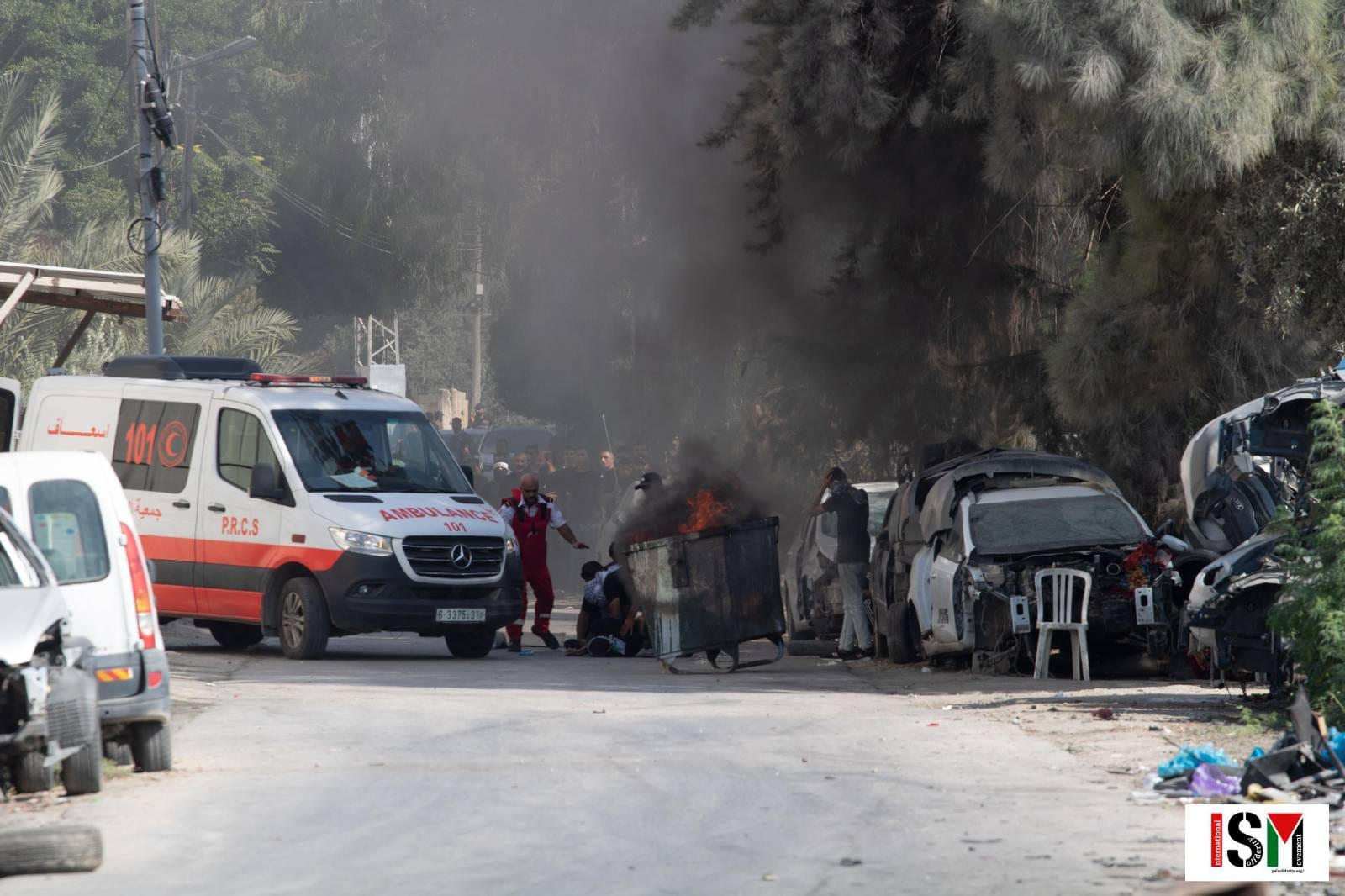-
Palestinians hospitalised in settler attack near Ramallah
15 October, 2023 | International Solidarity Movement | Wadi Siq Armed settlers attacked Palestinians and international volunteers in the Bedouin village of Wadi Siq, east of Ramallah, on Thursday (October 12) hospitalising two people. Villagers were also beaten after the illegal settlers returned for a second attack later that day, ISMers were told. […]
-
He was killed while holding the flag of Palestine
14 October, 2023 | International Solidarity Movement | Tulkarm By Diana Khwaelid The martyr Qassim Hakam Qassim, 24, was one of the young people who answered the call to participate in a mass demonstration in solidarity with Gaza in the city of Tulkarm, in the West Bank. The martyr Qassim, who grew up in the […]
-
Israeli soldiers open fire on unarmed protesters in Tulkarm, killing four
14 October, 2023 | International Solidarity Movement | Tulkarm By Diana Khwaelid Four Palestinian protesters were shot and killed by Israeli soldiers in Tulkarm, northern West Bank, on Friday, October 13. Soldiers shot live rounds into crowds who had marched from the city to the apartheid wall to condemn Israel’s crimes in Gaza on the […]
Action Alert An Nabi Saleh Apartheid Wall Arrests BDS Bethlehem Bil'in Cast Lead Demonstration Denial of Entry Ethnic Cleansing Farmers Gaza Global Actions Hebron House Demolition International law Israeli Army Jerusalem Live Ammunition Nablus Ni'lin Prisoner Ramallah Rubber-coated steel bullets Settlement Settlers Settler violence Tear-Gas Canister Video



